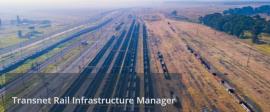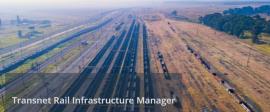
PRETORIA, Sept 6 (NNN-SANEWS) — While South’s Africa’s economy faces constraints, the recent economic developments in the country affirm it as an attractive investment destination with a resilient economy.
These developments include the $90 million investment by West Wits Mining Ltd to open a new gold mine, Transnet opening South Africa’s rail network to Train Operating Companies (TOCs) and Standard Bank’s investment of US$10 million towards the advancement of women entrepreneurs.
Addressing a media briefing in Pretoria, Minister in The Presidency, Khumbudzo Ntshavheni, said Cabinet welcomed these initiatives during a meeting that was held on Wednesday.
For the first time in 15 years, South Africa has attracted an investment of $90 million for the first new underground gold mine that will be built by West Wits Mining Ltd in the Witwatersrand Basin.
The Minister said the opening of the Qala Shallows project signals a renewed confidence in the potential of new gold projects.
“This is South Africa’s first new underground gold mine in 15 years. This investment signals renewed confidence in the potential of new gold projects and reaffirms South Africa as a mining investment country of choice.
“With production scheduled to begin in 2026, the South African economy will receive a major boost in new jobs, skills development, and economic development,” Ntshavheni said.
As a significant step towards opening South Africa’s rail network to private operators and reforming the rail sector, Transnet has selected 11 new Train Operating Companies (TOCs) and allocated them with 41 routes and six corridors.
Transnet’s Rail Infrastructure Manager (TRIM) estimates that the new TOCs will carry an additional 20 million tonnes of freight per annum from the 2026/27 financial year.
This will supplement Transnet Freight Rail’s (TFR’s) forecasted volumes and contribute to Government’s target of increasing freight moved by rail to 250m tons per annum by 2029.
“This major development in the Freight and Logistics Roadmap and the implementation of South Africa’s Rail Policy, marks a significant milestone in the advancement of the identified structural reforms which are key in unlocking economic development.
“The third-party access to the rail network will improve the utilisation of the network and thus increasing rail efficiency; reduce network unit costs by involving more operators; increase revenue that will contribute to investment in the maintenance and modernisation of the network; and reducing the external costs of freight logistics and improving the competitiveness of rail,” the Minister said.
She emphasised that that this development is also part of the progress Transnet is making towards becoming a more efficient and agile enterprise.
The initial allocations, on the 41 routes and six corridors, are as follows:
- North Corridor: six new entrants, 15 routes for transportation of coal and chrome.
- Iron Ore Corridor: one new entrant, one route for transportation of iron ore.
- Cape Corridor: two new entrants, two routes for transportation of manganese.
- Northeast Corridor: six new entrants, 16 routes for transportation of coal, chrome, magnetite, fuel, containers.
- Central Corridor: one new entrant, two routes for transportation of coal, containers (manganese).
- Container Corridor: four new entrants, five routes for transportation of containers, coal, sugar.
In addition, Standard Bank has committed to invest $10 million to the African Women Impact Fund (AWIF), aimed at supporting women fund managers with businesses in Africa.
The investment was possible through the strategic public-private partnership between the Department of Women, Youth and Persons with Disabilities (DWYPD), and Standard Bank of South Africa.
“The African Women Impact Fund will support women Fund Managers with businesses in Africa with an aim of addressing US$42billion funding gap experienced by women entrepreneurs in the African continent,” the Minister said.
The AWIF is a private-public partnership that recognises women are essential to Africa’s social and economic transformation.
Through the implementation of Operation Vulindlela, a joint initiative between the Presidency and National Treasury, government is accelerating the implementation of structural reforms to enable economic growth and job creation.
In its first phase, the reform programme focused on five area, namely energy, logistics, water, telecommunications, and the visa system as they were identified as the most important constraints on economic growth.
As a result, numerous economic bottlenecks eased, new investments were unlocked, and the growth potential of the economy was enabled.
The second phase of Operation Vulindlela is currently being implemented and is expected unleash a second wave of reform targeting new areas of growth.
These new focus areas include improving the performance of local government, addressing spatial inequality through housing policy and other reforms, and advancing digital transformation.
Policies to support economic development
Cabinet has approved the publication of the Incubation and Business Development Services (IBDS) Policy Framework for public comment.
This is led by the Department of Small Business Development to provide regulatory reform for the small enterprise ecosystem by clarifying the roles of various stakeholders and promoting coordinated efforts.
“This forms part of the broader National Integrated Small Enterprise Development Masterplan, which serves as the guiding framework for all role-players involved in accelerating Micro, Small and Medium Enterprise (MSMEs) growth through measurable programmes, products and services,” Ntshavheni said.
Key objectives include enhancing the quality and standards of business development services, ensuring better access to support for MSMEs especially in townships and rural areas, and fostering innovation and entrepreneurship.
“The framework places mentorship and incubation at the centre of MSME development and support for small businesses. Business incubators play a critical role in nurturing the growth of early-stage businesses by providing structured support, resources and a conducive environment to secure sustainability,” she said.
Cabinet also approved the publication of the draft Air Freight Strategy for South Africa for public comment.
The strategy aims to address current challenges such as fragmented cargo corridors and high entry barriers and improve competition and infrastructure connections with other markets.
Furthermore, the strategy will benefit exporters, importers and logistics companies by fostering economic growth and facilitating global trade through a more integrated air cargo network. — NNN-SANEWS






